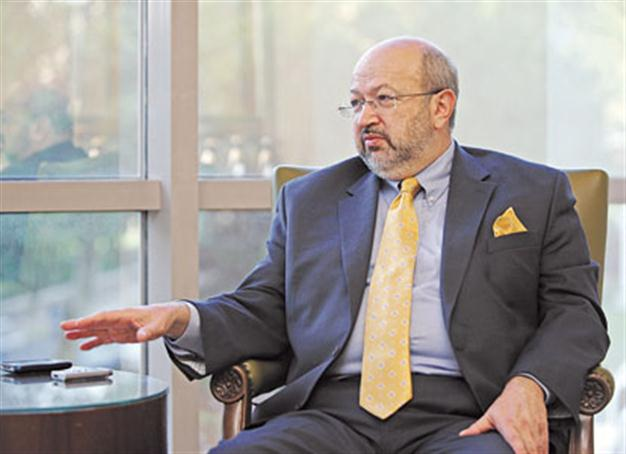‘Afghanistan model like OSCE difficult to achieve’
SEVİL KÜÇÜKKOŞUM ANKARA - Hürriyet Daily News

Daily News Photo by Emrah Gürel.
It will be difficult to fulfill the international desire to establish a mechanism like the Organization for Security and Co-operation in Europe (OSCE) for Afghanistan’s neighbors, but such a body is needed, the group’s head has said.
“What we are looking for is an inclusive community around Afghanistan to take some responsibility in dealing with the issues, not just internal Afghan issues, [but] regional issues in many aspects,” OSCE Secretary-General Lamberto Zannier told the Hürriyet Daily News in an interview yesterday.
A meeting of the Istanbul Conference on Afghanistan will be held tomorrow in order to draw a road map for regional security and cooperation mechanism. “It’s important to have a political process starting where the responsibility and the role of the countries of the region are highlighted,” Zannier said.
“This is, in a way, the beginning of a process. It’s normal to encounter difficulties. One of the important things is to have people around the table and to use all the tools of international communities; in a way, the OSCE itself is a bit of a model,” he said, adding that this was because the OSCE also brought together very diverse players that share a common geographic location.
Regional countries in Central Asia had “concerns when it comes to Afghanistan and the evolution of the role of international community in Afghanistan,” he said.
“They see potential for new security challenges there. There are also opportunities there, in economic development, for example. But you need to combat some of the negatives, beginning with such things as drug-trafficking issues,” he said.
Turkey’s role
Evaluating Turkey’s role in the OSCE, the secretary general said it was one of the most committed members of the organization.
“Turkey is very active in the OSCE, since our [agenda] is very relevant to Turkey’s own agenda,” he said, adding that some of the joint cooperation issues included democratic transition, security issues, arms control and conflicts in the South Caucasus.
Zannier said he has met Foreign Minister Ahmet Davutoğlu a number of times and added that the pair discussed developments in the Mediterranean area and the developing Arab Spring.
Turkey is very supportive on the issue, Zannier said, adding that Turkey itself might serve as a model.
“Secular Islam in Turkey is something that could serve as an interesting model in the region. This kind of expertise is useful,” he added.
The OSCE’s previous criticisms against Turkey regarding the detention of Turkish journalists and restrictions on the Internet are being discussed within the organization and will be addressed in a ministerial council in December, Zannier said.
“There will be a debate on Internet freedoms in which Turkey will also participate. It will be an opportunity to explain what it is doing to improve the situation in this regard and take account of certain criticisms expressed in the past. The detentions of journalists will be another issue to be raised,” he said.
















